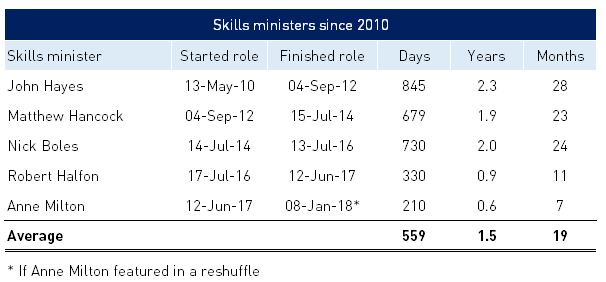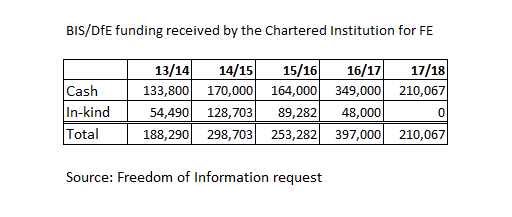The new year has got off to a less-than-‘good’ start for one college, which saw its Ofsted grade drop from two to three in a quiet week for FE providers.
West Thames College, one of just two FE and skills providers to have a full inspection report published since the start of the new year, was rated ‘requires improvement’ overall and in seven headline fields.
The report, published January 5 and based on an inspection in mid-November, bucks the late-2017 trend that saw a number of failing colleges boost their grades.
Inspectors deemed leaders’ self-assessment to be “inaccurate”, and found that it did not “focus sharply enough on the long-standing weaknesses”.
“Managers do not take sufficient action to ensure good-quality teaching, learning and assessment,” they wrote.
“Too few” learners on 16-to-19 study programmes – which make up the majority of enrolments – “attend lessons regularly enough to make good or better progress in their learning”.
Consequently, “too few” level two learners passed their courses, and “too few” level three learners “attain high grade-passes” – while the proportion of apprentices completing their courses on time was found to be “very low”.
Learning programmes and full-time provision for 14- to 16-year-olds at the college, which had around 5,000 learners over the previous contract year and was allocated over £3.5 million by the Education and Skills Funding Agency for 2017/18 as of November last year, were both found to be ‘good’ – although the report noted that leaders had been “slow to implement the statutory requirements” for these young learners.
It was better news for the independent learner-provider Academies Enterprise Trust, which taught around 80 learners over the previous academic year and has been allocated just over £70,000 for 2017/18, which saw its grade go up from ‘requires improvement’ to ‘good’ across the board in a report published January 3 and based on an inspection in early November.
It is an academy sponsor, and delivers apprenticeship training in supporting teaching and learning, business administration, and ICT across the schools within the trust.
Leaders and managers were praised for having “successfully improved the quality of teaching, learning and assessment” which resulted in “improved outcomes for most apprentices”.
“Apprentices make good progress in their programmes as a result of close and effective monitoring by managers and assessors,” the report said.
“Most” apprentices were found to develop “a broad range of practical skills and professional standards” thanks to “effective and well-planned on- and off-the-job training”.
“A significant proportion of apprentices progress to full-time employment and/or further and higher education,” inspectors found.
Two independent learning providers held onto their ‘good’ grades this week, following short inspections: Bromley-based E Training, and Adult College for Rural East Sussex (ACRES).
| GFE Colleges | Inspected | Published | Grade | Previous grade |
| West Thames College | 14/11/2017 | 05/01/2018 | 3 | 2 |
| Independent learning providers | Inspected | Published | Grade | Previous grade |
| Academies Enterprise Trust | 07/11/2017 | 03/01/2018 | 2 | 3 |
| Short inspections (remains grade 2) | Inspected | Published |
| E Training | 05/12/2017 | 05/01/2018 |
| Adult College for Rural East Sussex | 21/11/2017 | 04/01/2018 |








